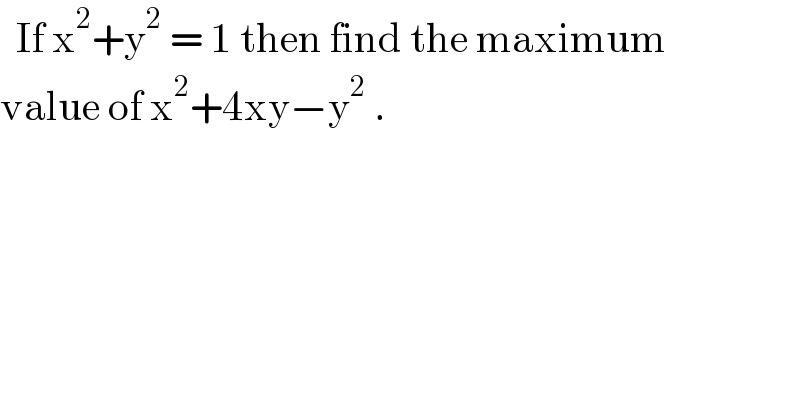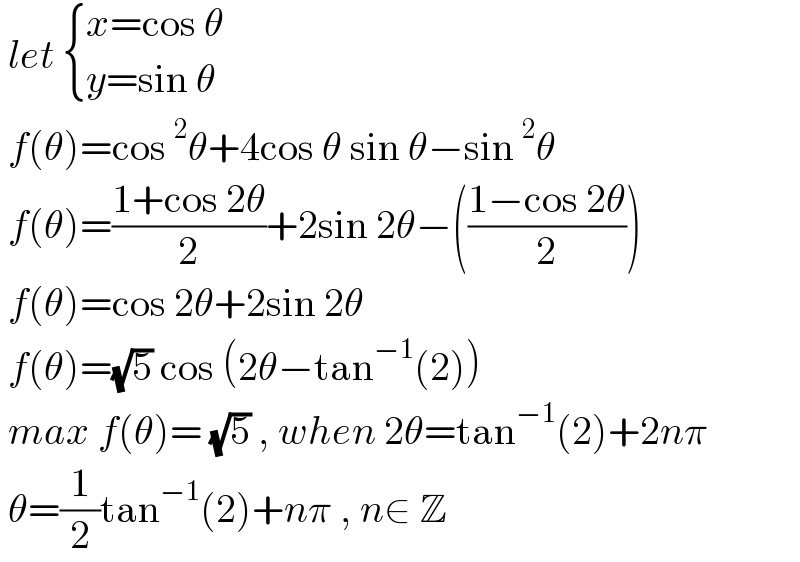
Question Number 152340 by imjagoll last updated on 27/Aug/21

$$\:\:\mathrm{If}\:\mathrm{x}^{\mathrm{2}} +\mathrm{y}^{\mathrm{2}} \:=\:\mathrm{1}\:\mathrm{then}\:\mathrm{find}\:\mathrm{the}\:\mathrm{maximum} \\ $$$$\mathrm{value}\:\mathrm{of}\:\mathrm{x}^{\mathrm{2}} +\mathrm{4xy}−\mathrm{y}^{\mathrm{2}} \:. \\ $$
Answered by iloveisrael last updated on 27/Aug/21

$$\:{let}\:\begin{cases}{{x}=\mathrm{cos}\:\theta}\\{{y}=\mathrm{sin}\:\theta}\end{cases} \\ $$$$\:{f}\left(\theta\right)=\mathrm{cos}\:^{\mathrm{2}} \theta+\mathrm{4cos}\:\theta\:\mathrm{sin}\:\theta−\mathrm{sin}\:^{\mathrm{2}} \theta \\ $$$$\:{f}\left(\theta\right)=\frac{\mathrm{1}+\mathrm{cos}\:\mathrm{2}\theta}{\mathrm{2}}+\mathrm{2sin}\:\mathrm{2}\theta−\left(\frac{\mathrm{1}−\mathrm{cos}\:\mathrm{2}\theta}{\mathrm{2}}\right) \\ $$$$\:{f}\left(\theta\right)=\mathrm{cos}\:\mathrm{2}\theta+\mathrm{2sin}\:\mathrm{2}\theta\: \\ $$$$\:{f}\left(\theta\right)=\sqrt{\mathrm{5}}\:\mathrm{cos}\:\left(\mathrm{2}\theta−\mathrm{tan}^{−\mathrm{1}} \left(\mathrm{2}\right)\right) \\ $$$$\:{max}\:{f}\left(\theta\right)=\:\sqrt{\mathrm{5}}\:,\:{when}\:\mathrm{2}\theta=\mathrm{tan}^{−\mathrm{1}} \left(\mathrm{2}\right)+\mathrm{2}{n}\pi \\ $$$$\:\theta=\frac{\mathrm{1}}{\mathrm{2}}\mathrm{tan}^{−\mathrm{1}} \left(\mathrm{2}\right)+{n}\pi\:,\:{n}\in\:\mathbb{Z} \\ $$
